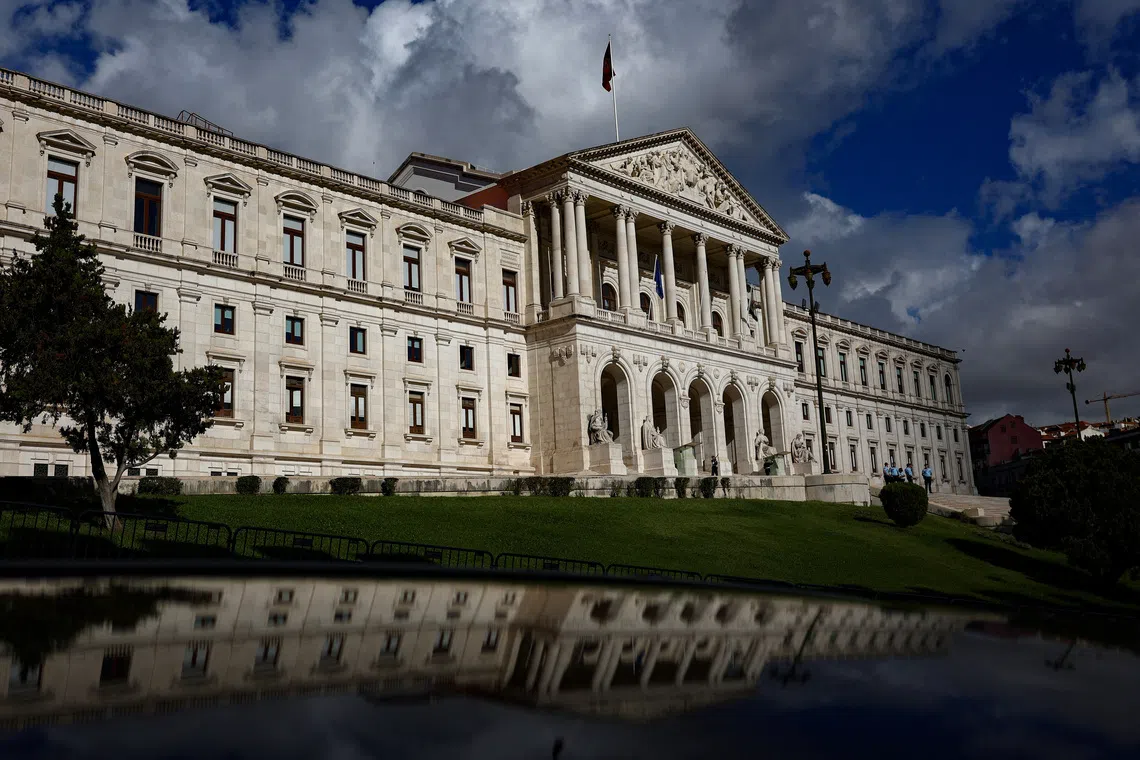Portugal’s Parliament approves far-right party’s Bill to ban face veils
Sign up now: Get ST's newsletters delivered to your inbox

A view of the Portuguese Parliament. Under a Bill in Portugal, forcing someone to wear a face veil in public would be punishable with prison terms.
PHOTO: REUTERS
Follow topic:
LISBON – Portugal’s Parliament approved on Oct 17 a Bill to ban face veils used for “gender or religious motives” in most public spaces that was proposed by the far-right Chega party, and effectively targets burqas and niqabs worn by Muslim women.
Under the Bill, proposed fines for wearing face veils in public would range between €200 (S$300) and €4,000. Forcing someone to wear one would be punishable with prison terms of up to three years.
Face veils would still be allowed in aeroplanes, diplomatic premises and places of worship.
If signed into law, it would put Portugal alongside European countries including France, Austria, Belgium and the Netherlands, which already have full or partial bans. President Marcelo Rebelo de Sousa could still veto the Bill or send it to the Constitutional Court for checks.
During Oct 17’s parliamentary session, Chega leader Andre Ventura was confronted by several female lawmakers from left-wing parties who opposed the Bill, but it passed with support from the centre-right coalition.
“We are today protecting female members of Parliament, your daughters, our daughters, from having to use burqas in this country one day,” Mr Ventura said.
Ms Andreia Neto, a lawmaker from the ruling Social Democratic Party, said before the vote: “This is a debate on equality between men and women. No woman should be forced to veil her face.”
Only a small minority of Muslim women in Europe cover their faces, and in Portugal, such veils are very rare.
But full-face coverings such as niqabs and burqas have become a polarising issue across Europe, with some arguing that they symbolise gender discrimination or can represent a security threat and should be outlawed. REUTERS

